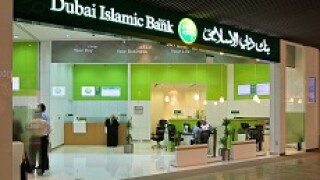Middle East Bonds
-
A pair of sovereigns hit the MTN market to raise debt this week, looking for cash to meet increased borrowing requirements as they grapple with the coronavirus pandemic. Israel came to the MTN market this week printing paper to helpfund its Covid-19 response, while Ireland ventured out to the ultra-long end of the curve to print its fourth century bond.
-
Emerging markets bondholders started the week in another round of pain as the price of oil fell to a 17-year low, dragging down risk sentiment and putting fiscal balances into more doubt.
-
NMC Health’s $360m convertible bonds are trading at mere cents on the dollar, suggesting virtually no recovery value after the scandal-hit UAE hospitals group said on Tuesday it had discovered even more undisclosed debt.
-
Kuwait's Equate Petrochemical stuck its head above the parapet this week, holding investor calls for a triple-tranche bond issue.
-
The spread of Covid-19 in the Middle East and the simultaneous drop in oil prices has prompted governments across the region to increase borrowing from capital markets. But some credits will have a far easier ride than others, bankers and experts said.
-
NMC Health, the scandal-hit UAE-based hospitals operator, has $2.7bn in undisclosed debt, taking its total gross debt to around $5bn, and an investigation into its finances has found evidence of serious fraud.
-
Lebanon has started working with creditors to restructure its debt after defaulting for the first time in its history. Investors are gloomy about the chances of recovery, with prices on the country’s outstanding bonds plunging to new lows on Monday.
-
Dubai Islamic Bank, which began roadshows over a week ago for a senior unsecured sukuk, has postponed the deal as a result of the Covid-19 virus, according to bankers near the deal. The spread of the virus has caused sharp swings in global markets, causing havoc in primary markets.
-
Shares in NMC Health, the London-listed United Arab Emirates hospitals operator, have been suspended. Its convertible bonds have fallen to around 50 cents on the dollar, after the Financial Conduct Authority (FCA) placed it under investigation and the company fired its chief executive.
-
Frontier market bond issuance dropped in 2019, with sovereign issuance at its lowest figure since 2011, amid signs that private-sector creditors are pulling back from riskier countries.
-
-
Dubai Islamic Bank is embarking on a roadshow having mandated nine banks for a long five year or seven year dollar benchmark sukuk.











